Articles



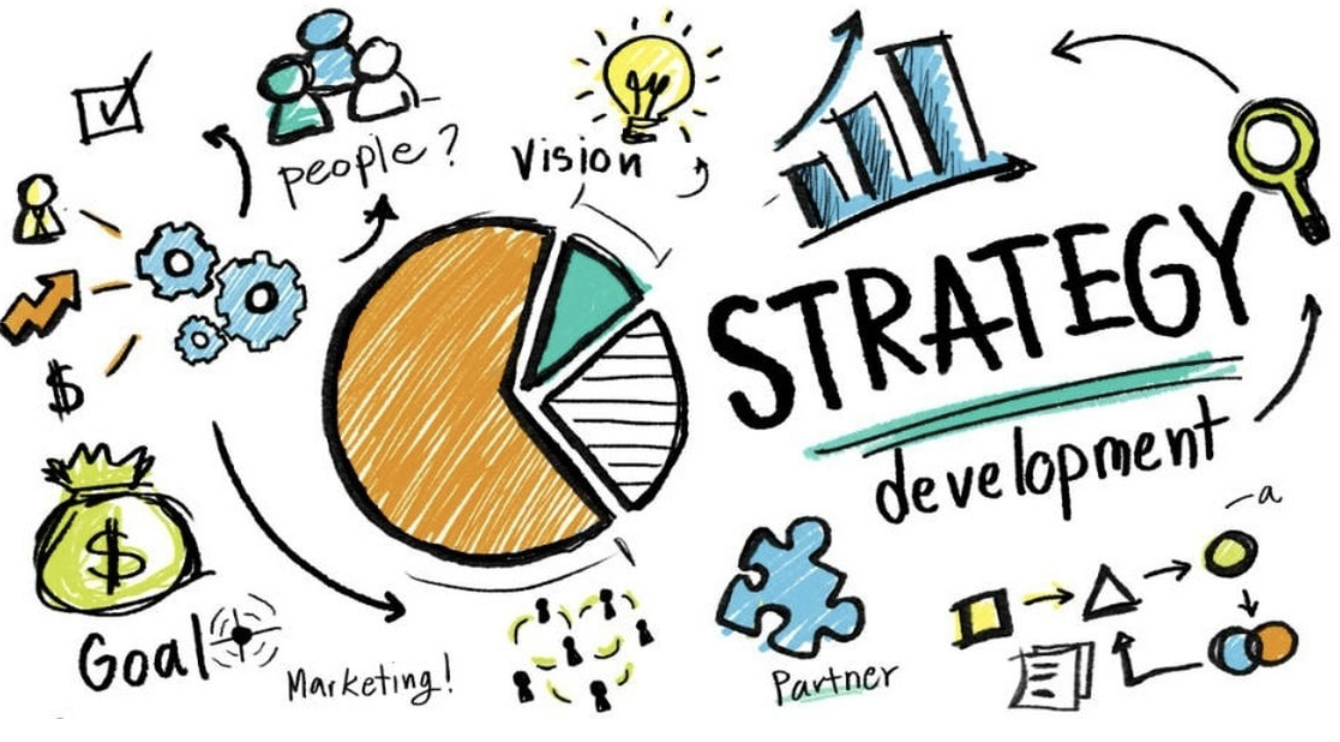

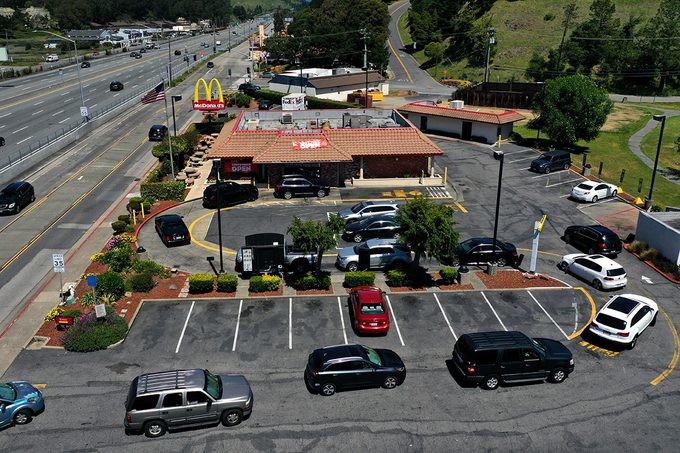


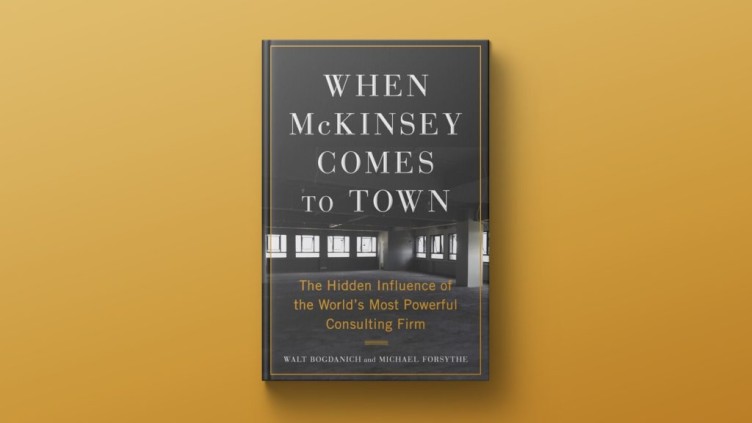
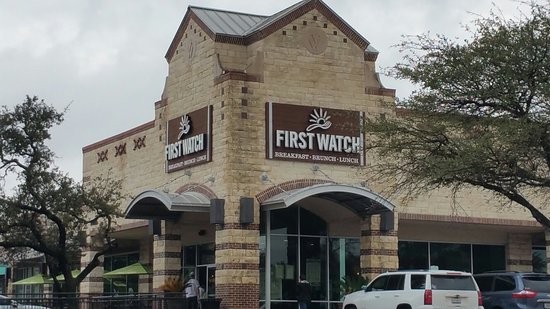
An Obligation to Look Busy
A year before the Great Recession, I met my special friend in Prague. This is something I had looked forward to for years. While living there, I would call her up regularly and ask her to come for a visit because there was so much I wanted to show her.
So several years after my return to the States, she phoned me and suggested that I meet her and her friend there. “Would you still be up to being our personal tour guide?” she asked.” She knew the answer and a few months later, we were sharing a beautiful pension near the river.
For the first couple of days, we walked for miles as I took them through the narrow alleyways of old Prague, up to the castle that overlooked the city. In the warm café, we sat and chatted over cappuccinos and pastries while the snowflakes gently landed on the sidewalk outside.

I showed them the square that ushered in the Velvet Revolution, toured a museum that gave us a glimpse of Czech life under the communist era, and spent pleasant evenings enjoying an assortment of meals with a bottle of wine or local beers.
Because we were on the tail end of winter and entering the beginning of spring, the weather periodically swung from snow to a clearing of beautiful crisp blue sky. As in the case of our Tuesday afternoon when the weather began to grow cloudy until snowflakes were falling once again. Looking up toward the sky Nancy suggested that she and Momi return to the flat to get their laundry out of the way. “I don’t think we are going to want to back to Old Town Square if it is starting to snow again” she exclaimed. “OK, I will let you two do your thing and I’m going to return later.”

I visited an old favorite restaurant on Vaclav Square and wrote some postcards over a cup of espresso. An hour later I returned to our pension but after discovering that the women were still out, I decided to go back out for a while. I shut the door behind me and then realized what I had just done, left the key and phone inside.
I had no way of calling Nancy and also realized that if I left the building, I would not have a way to get back in. With the snow falling outside, I did not elect to take this option. So I sat down, leaned my back across the door, and waited.
Ten minute passed - and at the top of the sixth floor as I continued to sit on the floor leaning against the door heard a click and the hallway lights went off. There in the darkness I listened as doors opened and slammed on the floors below me. The sound of people climbing the stairs or exiting the door to the building below – with a loud slam seemed to awaken my imagination. Then, there was the silence. For another 10 to 15 minutes, I heard nothing except the buffered sound of a resident in an apartment.
My senses awakened
I have confessed to having a Type A personality. I like to be in control and hate to wait. I detest lines and generally like to be outside or in an energized environment. Nevertheless, something strange was happening. Instead of growing impatient or becoming upset, I was totally at peace.
For the first time in a long time, I could hear myself think. I had no distractions, no phones, buzzers, beepers, or laptops. No IPads, and no meetings or an ability to schedule one.
No, I was able to think and reflect on not only my surroundings but on “things” in general. It was great! As I continued to sit there on the floor, I reflected on my childhood, and the things I enjoyed doing as a boy. Then I smiled as my mind took me to my days on Waikiki Beach as a teenager. My memory traveled to my first business venture, the ups and downs I experienced as an entrepreneur, along with the lessons I took with me. Instead of a dreaded and miserable experience, I greeted the women with a greater sense of relaxation. “Wow, Nancy exclaimed, I thought you would be upset.” No – I actually learned something I replied.

John emphasizes to his clients the importance of taking time away from the hustle and bustle of business and work to catch a breath and reflect on things otherwise ignored in life. Taking time to do this will often allow us to solve our problems, meet our challenges and appreciate lessons and experiences from the past.
Great business icons come and go. But can this one be saved?
Culprits Include:
1. Lack of quality control
2. A relentless hyper-focus on outsourcing
3. Tries to chase profits over physics and common sense
4. 350 million dollars for training on Max jets (Which SW Airlines balked at, and other airlines failed to implement)
5. Relentless drive to minimize training (because companies needed to pay for it)

Rumor has it that the CEO of United Airlines traveled to France to beg Airbus to get United Airlines on a fast order list for more Airbus planes. Why?
For years United like so many others - has been loyal to the proud American Icon, Boeing. The 737s have been the backbone of their domestic fleet. Much as other major carriers throughout the world- who had faith in Boeing's reputation. But several years ago, Boeing, in the race to beat Airbus began making poor decisions that affected workmanship and a need for costly training for pilots.
The Max Jets became a pending disaster for some of the foreign carriers whose pilots lacked the necessary training for flying the more advanced model; causing the FAA to ground the entire fleet.
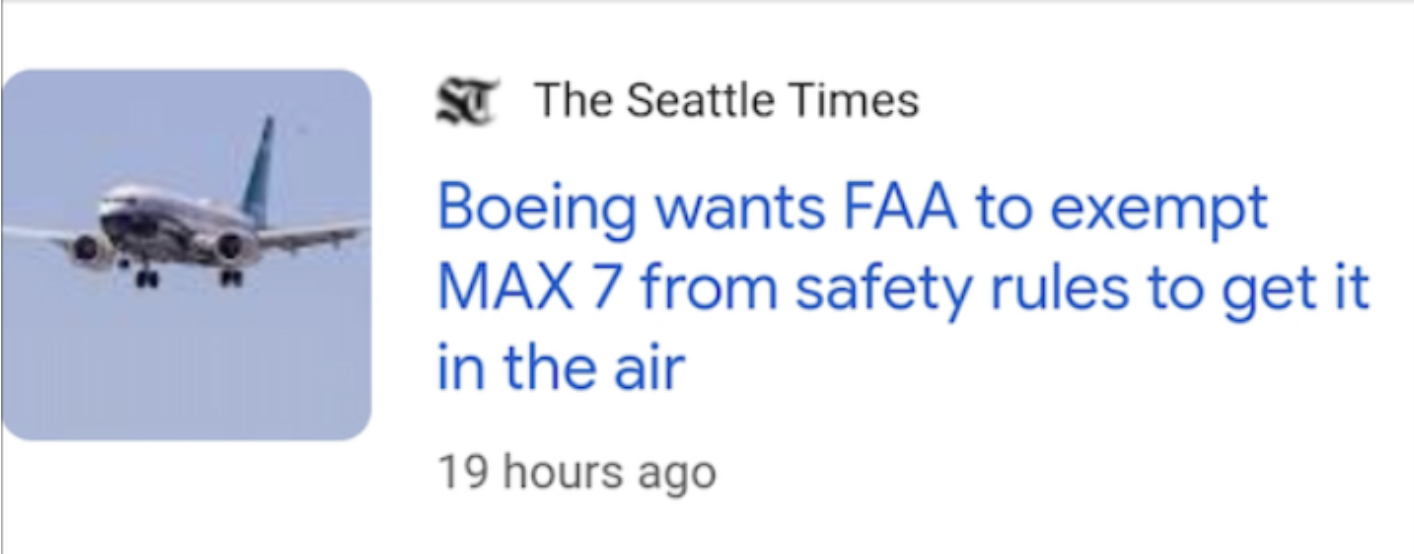
Boeing began working hard to “address the issues” with the new planes and to earn back the trust of their customers.
Yet the lesson failed to be entirely learned when several weeks ago plane parts began dropping into the sky after takeoff. Miraculously, no major injuries occurred, and the planes landed safely (only to be grounded once again!)

How is it that a great company like Boeing can fall from grace? And a company regarded as the pride of American ingenuity mess things up so badly? Competition mixed with pressure to perform financially can do strange things to a company. Airbus had built a plane which was considered to be more technologically advanced. And though their planes had their share of pitfalls, Boeing shareholders were becoming nervous. In a quest to expedite advances in their new planes while minimizing overhead, they relinquished many of their original hands-on oversight to Spirit AeroSystems. Some may argue that in the process they pushed Spirit to get planes out faster, thus creating a void of quality control. The result ended in a loss of prestige and trust not only to their buyers but to the public.

Not a week passes when a company, their board of directors, their buyers, and CEOs put profits over positive outcomes. Sometimes this affects safety. Other times it can cost the end user or buyer something else. However in most cases unless there is a decision to learn from errors and re-commit to excellence then eventually these companies may just be remembered as a company which was once a great icon we looked up to and admired.
Building a Business Strategy that Works
Every day, entrepreneurs come up with an idea for a business that they believe will work. Sometimes they envision lines of people at the door, computers crashing due to a swamp of orders, or the phones ringing off the hook – all before they actually get their business started.
Some succeed, and many fail. Why?
It all comes down to twelve important things that really matter:
1. A well-thought-out plan
2. The support of a spouse or family members
3. Perseverance and staying power, as well as a skill for quick adaptability
4. Surrounding yourself with capable advisers in business, marketing, financial, tech, insurance, legal, build-out and retirement
5. Funding – finding it, using it wisely, and converting it to profitability
6. Understanding your market and branding your products and services to have relevance
7. A long-term marketing strategy that is specifically customized to your business objectives
8. Building the right team and support processes to serve your growing customer base
9. Creating systems that work
10. Thinking big and not limiting yourself because of the unknown
11. Being truly able to work on - and not just in - your business
12. And having a succession plan that allows your business to be truly a part of your retirement or seed money toward your next venture
While running successful businesses in Hawaii, John began receiving multiple requests from established businesses and qualified start-ups - seeking his advice for making their businesses more successful.
As a seminar presenter with Cal-Fed Bank, speaking to business banking customers, and as a teacher with the Mt Diablo and Pleasant Hill school districts (California) for extended Adult education classes on successful entrepreneurism, John has covered a wide variety of business-related topics.
In 1995, he founded The Russell Consulting Group in San Francisco and began working with small and mid-sized businesses throughout the Bay area as well as those expanding into Central Europe. After residing in Prague he relocated to Austin in 2002. He is active throughout the business community in Austin as a Board Member of Austin Independent Business, international business planning events, and serving as President of various business organizations.
Big Bob, Who Planned It Well
“If I’m going into business for myself, he reasoned, then I was going to do so with a strategy.”
As a teenager, I was always impressed with my friend’s family lifestyle. They owned a large, beautiful home near the cliffs of Diamond Head in Honolulu. The living room, dining room, and two bedrooms had a majestic view overlooking Moanalua Bay and the ocean. Stay the night there, and you were coaxed to sleep with the sound of waves gently crashing on the reef below.
The Wilsons frequently traveled to the Mediterranean in the summers, went skiing in Aspen in the winter, and on occasion included me on weekend trips to the outer islands of Hawaii.
Big Bob was the family patriarch—a tall man who had made his fortune in the broadcasting business. One summer afternoon, he walked into the living room in casual shorts and a tee shirt. Curious, I asked why he was so casual in the middle of the day. “You’re not working?” I asked. “Not anymore; I retired.”
“Why?”
“Because I don’t want to work anymore.”
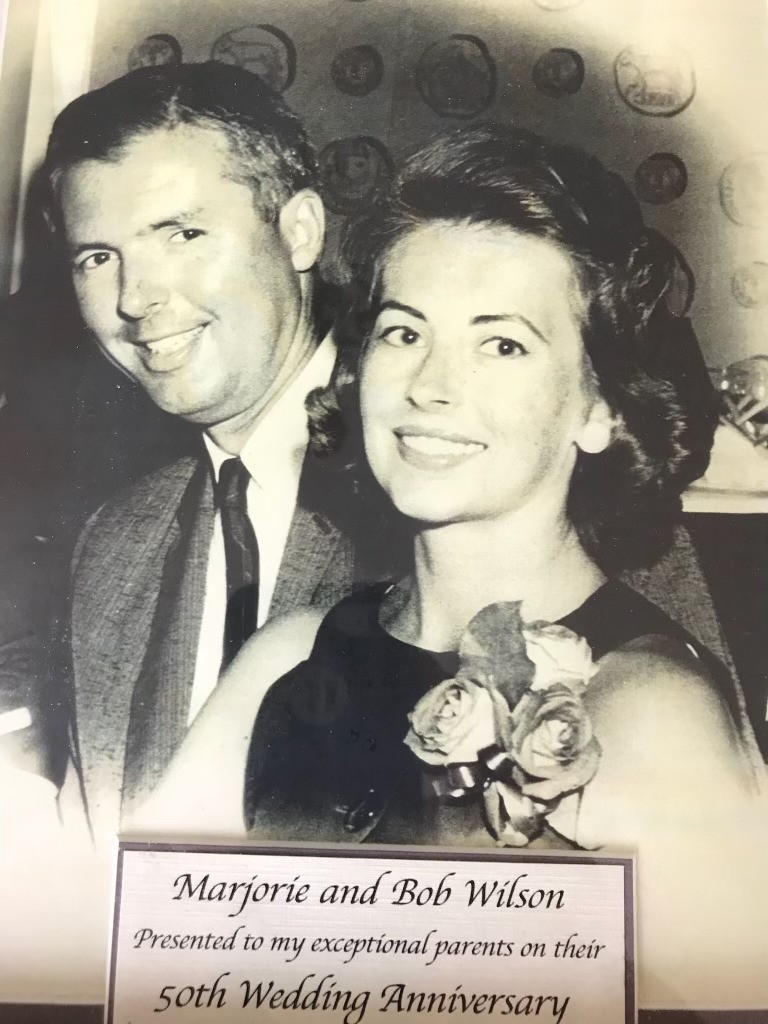
A couple of years later, when I revisited that day with him, I discovered that Big Bob was able to do wonderful things and retire early because he had planned for himself, his business, and his family years earlier.
“If I’m going into business for myself,” he reasoned, then I was going to do so with a strategy. I would consider possible challenges ahead and work around them before they occur. John, he continued, it’s all about making the time and having the discipline to plan ahead. You can start out poor, but with a plan, you will soon find yourself in a position to bring in people who are smarter than you and who can ensure that your plans are truly scalable.”
Several years ago, Big Bob passed away. Because he had worked with the right team to ensure that he had a well-thought-out plan for success, he was able to build a successful business from nothing, provide for his family, and leave them all in good hands afterward.
John and his vetted partners work as a team for the purpose of doing the same thing for clients that Big Bob did for himself.
These partners include Attorneys, CPAs, Financial Planners, Business Brokers, and others to ensure that – from start to finish, the best outcomes for small to medium companies (and those who build them) can be realized.
The Approaching "DRIVE-THROUGH" Crises
Extreme weather versus conveniences and the effects. The dilemma is reaching critical mass. Do businesses give the consumers what they want or risk alienating them?
In a culture of convenience, fast food and coffee locations have been providing drive-throughs for over a ¼ century. So hooked on this idea that for years it has not been uncommon for some to sit waiting for nearly ten minutes while their cars idled. All - while with their cars and spewing carbon fumes into the atmosphere.
But at what cost?
As we endure the hottest summer in recorded history and watch unusual rains flood communities, it has become very apparent that drastic changes in our weather are happening.
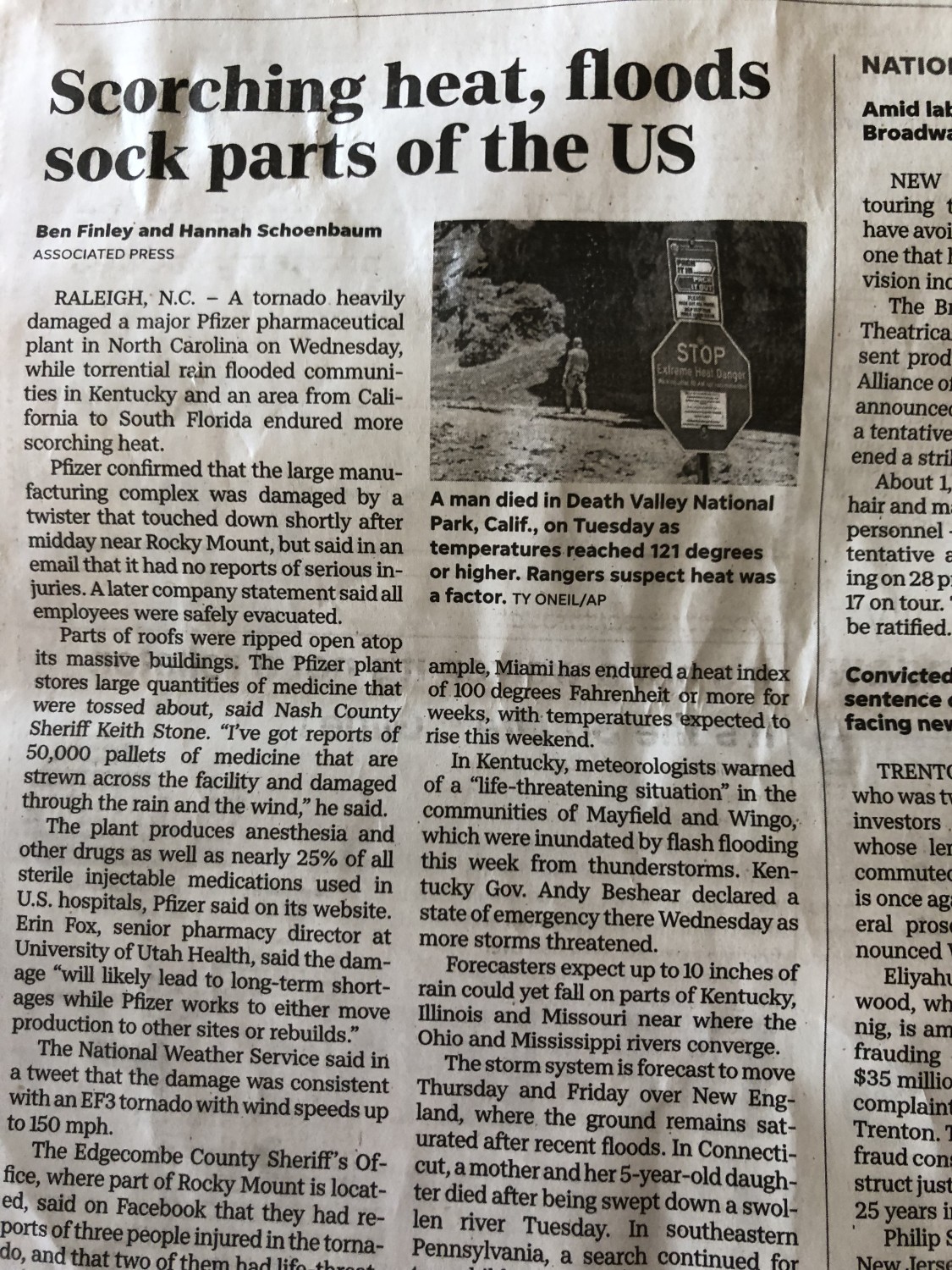
From massive forest fires north in Canada to unprecedented 90-degree water temperatures off the Florida coastline, we are in deep trouble.
For consumers accustomed to drive-throughs, taking away this convenience can cost businesses dearly. And for socially conscious businesses both aware of and concerned about the reality of climate change, the double-edged sword of guilt over profits is real.
Moreover, should consumers accept a no drive-through policy at their favorite places - then what?
• Will they leave their cars running anyway so the air conditioning stays on
during a typical 100-degree plus afternoon?
• Should this be the case, then not much is gained by ending the beloved drive-
throughs.
• How bad will the lines at the counter get? Will those lines by themselves hurt
business?
• Could this be more easily carried out if mandated by city codes? If attempted,
how many lawsuits will such mandates create?
• How about if drive-throughs were only allowed for EVs? Would that generate
discrimination lawsuits by non-EV drivers?

It can get complicated really fast. Unfortunately, increasing heat, extreme storms, and dried-up rivers may soon be forcing us to be inconvenienced as well.
A cornerstone of John's advisory approach has been to maintain proactive strategies for companies to be aware of - and how to - adapt to constant change.
Experience Brings Powerful Conclusions
My many years of experience are fairly wide, advising in multiple sectors, from small businesses to Fortune 500s. I discovered years ago that regardless of size and sector, all fundamental business challenges are universal. While financial goals are important, they should be part of a comprehensive strategy (where all things) are considered. Like the body, a business is a living thing requiring that all parts are working efficiently for healthy outcomes
It's all about "Your Business Culture"
Great companies share a common denominator; they are built on the principles of a healthy business culture. In doing so, job performance increases, and customer satisfaction and loyalty reward businesses with 5-star ratings.
Here are a couple of guidelines for you to achieve this:
1. Have a clearly defined vision - with a mission to support it.
2. Remember to share it with your team and empower the members of your organization to truly understand, embrace and share it with one another. Just hanging it on the wall won’t do it.
Actually, engaging and demonstrating it will.
3. Maintain good communication
4. Have an annual retreat at least once a year with the purpose of some fun and relaxation, along - with ample time to brainstorm collectively for improving the operations, customer delivery, and new objectives that can be measured in the coming months.
5. Quickly identify and remove toxic employees. While listening to valid grievances and addressing issues in a positive way is important, recognizing the difference between salvaging and releasing someone is imperative if you want to protect the culture you have built.
6. Strike a balance between listening and managing with respect. Remember, respect is earned, not demanded.
7. Create a fun atmosphere, but with guidelines and expectations. The end goal is to give your team members a reason to love to come to work.
8. Be authentic, not phony, or hokey. You want smart people working for/with you, right? Don’t insult their intelligence by being inauthentic.
John built and sold his own successful businesses before advising others. Through a combination of trial and error and listening to the counsel of other business advisers, he finally came to understand the secret sauce for building a healthy business culture.
Recommended Reading
Remember what you ask for, or you might not get it.
I am not implying that these folks have not done some remarkable things for their clients; they have. But I do encourage every company or business owner who is considering Business Consultants, Advisers or Strategists to ponder on the following:
1. What is your clear purpose for wanting to engage?
2. Between the investment to retain professional advice, what is your desired threshold for you to:
o Recover on such an investment o Truly profit from it
3. How comprehensive will their approach be? Will it address one issue, or multiple ones?
Many large firms have a reputation for taking a slash-and-burn approach to saving money.
4. How much effort will be made to root out the true reasons for poor employee morale and lack of buy-in?
o What’s wrong? Why the poor performance?
o What would “the employees” advise? (Years ago, I sat across from a Senior Banker in Prague who mentioned that a major firm had been retained to recommend changes for increased profitability. The team the Management Consulting Firm brought in consisted of recent 20-something graduates from Business Schools. I know this because I met some of them. The knowledge and experience they had to advise this Bank with locations throughout the country had minimum real hands-on business experience. But they did have a Business Degree! I will never forget what the Banker said to me: “All they want to do is slash and burn, get rid of people.” Then with a tear in his eye, he leaned forward and whispered, “but they never asked us what we thought could be done.”)

5. Will your marketing campaign be reviewed to see if you are doing what you claim to do for your customers? Will the proposal you receive address:
o Who are your true competitors are – and why?
o Political and social trends that are, or may be about to affect your company’s profitability?
6. Does this proposal suggest that this is going to be a one-time engagement, where at the end of the process, they hand you a lengthy glossy report and wish you well? Or:
o Is this intended to be the beginning of a long-term relationship? (A least 20% of prospective clients I have met with have brought out a report from a previous firm with whom they had engaged. They handed it to me and said, “this was what the previous consulting firm gave us.”
o When I asked if they implemented any of the recommendations, they replied, “a few.”
o When I asked them why, the CEO, Managing Director or Owner simply said, “because there was no follow-through for them to make sure we had changed course and measured our progress!”)
Remember what you ask for, or you might not get it.
John has provided comprehensive advisory and strategic services to businesses across multiple sectors and sizes in the United States and Central Europe.
If there is such an advanced degree in Customer Service, she must have a "Doctorate."
What Kathryn Can Teach Companies About Customer Service
Many will agree that good customer service is harder to come by. Kathryn can teach us about what Tom Peters spoke about in his famous book, “In Search of Excellence.”
Every Thursday morning, when I meet with colleagues at the First Watch Lakeline location, Kathryn has the table ready for us. On it is my large glass of ice water. And when she stops by our table, we are always greeted with her warm smile. Then she goes into an autopilot rehearsing what she assumes - correctly, that we will be ordering. Sometimes she might even advise that something “may not be that good today, so you might want to consider another item.” And though such a suggestion is rarely made, the bottom line is that she is looking after us. She knows us, and she knows what’s happening in the kitchen.
Once again, she remembers that I will want extra butter, compote, and ice water “to go” when we are ready to leave.

Kathryn quickly shares with new staff members when and how we like our orders. She then proceeds to do the same with everyone she serves in the restaurant.
When any discussion has been brought up about finding a different location, we are quick to poo-poo the idea because we wouldn’t have Kathryn looking out for us. A couple of days ago was her birthday. We wished her a happy birthday and hope she will be on this planet for years to come, as whomever she meets or works with or for, the world will be a little brighter because of her.
John has worked tirelessly to instill the value and rewards of good customer service. His clients reap the benefits of these principles through customer loyalty and spreading positive stories.
Disclaimer: First Watch is not a client of RCG.
A year before the Great Recession, I met my special friend in Prague. This is something I had looked forward to for years. While living there, I would call her up regularly and ask her to come for a visit because there was so much I wanted to show her.
So several years after my return to the States, she phoned me and suggested that I meet her and her friend there. “Would you still be up to being our personal tour guide?” she asked.” She knew the answer and a few months later, we were sharing a beautiful pension near the river.
For the first couple of days, we walked for miles as I took them through the narrow alleyways of old Prague, up to the castle that overlooked the city. In the warm café, we sat and chatted over cappuccinos and pastries while the snowflakes gently landed on the sidewalk outside.

I showed them the square that ushered in the Velvet Revolution, toured a museum that gave us a glimpse of Czech life under the communist era, and spent pleasant evenings enjoying an assortment of meals with a bottle of wine or local beers.
Because we were on the tail end of winter and entering the beginning of spring, the weather periodically swung from snow to a clearing of beautiful crisp blue sky. As in the case of our Tuesday afternoon when the weather began to grow cloudy until snowflakes were falling once again. Looking up toward the sky Nancy suggested that she and Momi return to the flat to get their laundry out of the way. “I don’t think we are going to want to back to Old Town Square if it is starting to snow again” she exclaimed. “OK, I will let you two do your thing and I’m going to return later.”

I visited an old favorite restaurant on Vaclav Square and wrote some postcards over a cup of espresso. An hour later I returned to our pension but after discovering that the women were still out, I decided to go back out for a while. I shut the door behind me and then realized what I had just done, left the key and phone inside.
I had no way of calling Nancy and also realized that if I left the building, I would not have a way to get back in. With the snow falling outside, I did not elect to take this option. So I sat down, leaned my back across the door, and waited.
Ten minute passed - and at the top of the sixth floor as I continued to sit on the floor leaning against the door heard a click and the hallway lights went off. There in the darkness I listened as doors opened and slammed on the floors below me. The sound of people climbing the stairs or exiting the door to the building below – with a loud slam seemed to awaken my imagination. Then, there was the silence. For another 10 to 15 minutes, I heard nothing except the buffered sound of a resident in an apartment.
My senses awakened
I have confessed to having a Type A personality. I like to be in control and hate to wait. I detest lines and generally like to be outside or in an energized environment. Nevertheless, something strange was happening. Instead of growing impatient or becoming upset, I was totally at peace.
For the first time in a long time, I could hear myself think. I had no distractions, no phones, buzzers, beepers, or laptops. No IPads, and no meetings or an ability to schedule one.
No, I was able to think and reflect on not only my surroundings but on “things” in general. It was great! As I continued to sit there on the floor, I reflected on my childhood, and the things I enjoyed doing as a boy. Then I smiled as my mind took me to my days on Waikiki Beach as a teenager. My memory traveled to my first business venture, the ups and downs I experienced as an entrepreneur, along with the lessons I took with me. Instead of a dreaded and miserable experience, I greeted the women with a greater sense of relaxation. “Wow, Nancy exclaimed, I thought you would be upset.” No – I actually learned something I replied.

John emphasizes to his clients the importance of taking time away from the hustle and bustle of business and work to catch a breath and reflect on things otherwise ignored in life. Taking time to do this will often allow us to solve our problems, meet our challenges and appreciate lessons and experiences from the past.
Great business icons come and go. But can this one be saved?
Culprits Include:
1. Lack of quality control
2. A relentless hyper-focus on outsourcing
3. Tries to chase profits over physics and common sense
4. 350 million dollars for training on Max jets (Which SW Airlines balked at, and other airlines failed to implement)
5. Relentless drive to minimize training (because companies needed to pay for it)

Rumor has it that the CEO of United Airlines traveled to France to beg Airbus to get United Airlines on a fast order list for more Airbus planes. Why?
For years United like so many others - has been loyal to the proud American Icon, Boeing. The 737s have been the backbone of their domestic fleet. Much as other major carriers throughout the world- who had faith in Boeing's reputation. But several years ago, Boeing, in the race to beat Airbus began making poor decisions that affected workmanship and a need for costly training for pilots.
The Max Jets became a pending disaster for some of the foreign carriers whose pilots lacked the necessary training for flying the more advanced model; causing the FAA to ground the entire fleet.

Boeing began working hard to “address the issues” with the new planes and to earn back the trust of their customers.
Yet the lesson failed to be entirely learned when several weeks ago plane parts began dropping into the sky after takeoff. Miraculously, no major injuries occurred, and the planes landed safely (only to be grounded once again!)

How is it that a great company like Boeing can fall from grace? And a company regarded as the pride of American ingenuity mess things up so badly? Competition mixed with pressure to perform financially can do strange things to a company. Airbus had built a plane which was considered to be more technologically advanced. And though their planes had their share of pitfalls, Boeing shareholders were becoming nervous. In a quest to expedite advances in their new planes while minimizing overhead, they relinquished many of their original hands-on oversight to Spirit AeroSystems. Some may argue that in the process they pushed Spirit to get planes out faster, thus creating a void of quality control. The result ended in a loss of prestige and trust not only to their buyers but to the public.

Not a week passes when a company, their board of directors, their buyers, and CEOs put profits over positive outcomes. Sometimes this affects safety. Other times it can cost the end user or buyer something else. However in most cases unless there is a decision to learn from errors and re-commit to excellence then eventually these companies may just be remembered as a company which was once a great icon we looked up to and admired.
Building a Business Strategy that Works
Every day, entrepreneurs come up with an idea for a business that they believe will work. Sometimes they envision lines of people at the door, computers crashing due to a swamp of orders, or the phones ringing off the hook – all before they actually get their business started.
Some succeed, and many fail. Why?
It all comes down to twelve important things that really matter:
1. A well-thought-out plan
2. The support of a spouse or family members
3. Perseverance and staying power, as well as a skill for quick adaptability
4. Surrounding yourself with capable advisers in business, marketing, financial, tech, insurance, legal, build-out and retirement
5. Funding – finding it, using it wisely, and converting it to profitability
6. Understanding your market and branding your products and services to have relevance
7. A long-term marketing strategy that is specifically customized to your business objectives
8. Building the right team and support processes to serve your growing customer base
9. Creating systems that work
10. Thinking big and not limiting yourself because of the unknown
11. Being truly able to work on - and not just in - your business
12. And having a succession plan that allows your business to be truly a part of your retirement or seed money toward your next venture
While running successful businesses in Hawaii, John began receiving multiple requests from established businesses and qualified start-ups - seeking his advice for making their businesses more successful.
As a seminar presenter with Cal-Fed Bank, speaking to business banking customers, and as a teacher with the Mt Diablo and Pleasant Hill school districts (California) for extended Adult education classes on successful entrepreneurism, John has covered a wide variety of business-related topics.
In 1995, he founded The Russell Consulting Group in San Francisco and began working with small and mid-sized businesses throughout the Bay area as well as those expanding into Central Europe. After residing in Prague he relocated to Austin in 2002. He is active throughout the business community in Austin as a Board Member of Austin Independent Business, international business planning events, and serving as President of various business organizations.
Big Bob, Who Planned It Well
“If I’m going into business for myself, he reasoned, then I was going to do so with a strategy.”
As a teenager, I was always impressed with my friend’s family lifestyle. They owned a large, beautiful home near the cliffs of Diamond Head in Honolulu. The living room, dining room, and two bedrooms had a majestic view overlooking Moanalua Bay and the ocean. Stay the night there, and you were coaxed to sleep with the sound of waves gently crashing on the reef below.
The Wilsons frequently traveled to the Mediterranean in the summers, went skiing in Aspen in the winter, and on occasion included me on weekend trips to the outer islands of Hawaii.
Big Bob was the family patriarch—a tall man who had made his fortune in the broadcasting business. One summer afternoon, he walked into the living room in casual shorts and a tee shirt. Curious, I asked why he was so casual in the middle of the day. “You’re not working?” I asked. “Not anymore; I retired.”
“Why?”
“Because I don’t want to work anymore.”

A couple of years later, when I revisited that day with him, I discovered that Big Bob was able to do wonderful things and retire early because he had planned for himself, his business, and his family years earlier.
“If I’m going into business for myself,” he reasoned, then I was going to do so with a strategy. I would consider possible challenges ahead and work around them before they occur. John, he continued, it’s all about making the time and having the discipline to plan ahead. You can start out poor, but with a plan, you will soon find yourself in a position to bring in people who are smarter than you and who can ensure that your plans are truly scalable.”
Several years ago, Big Bob passed away. Because he had worked with the right team to ensure that he had a well-thought-out plan for success, he was able to build a successful business from nothing, provide for his family, and leave them all in good hands afterward.
John and his vetted partners work as a team for the purpose of doing the same thing for clients that Big Bob did for himself.
These partners include Attorneys, CPAs, Financial Planners, Business Brokers, and others to ensure that – from start to finish, the best outcomes for small to medium companies (and those who build them) can be realized.
The Approaching "DRIVE-THROUGH" Crises
Extreme weather versus conveniences and the effects. The dilemma is reaching critical mass. Do businesses give the consumers what they want or risk alienating them?
In a culture of convenience, fast food and coffee locations have been providing drive-throughs for over a ¼ century. So hooked on this idea that for years it has not been uncommon for some to sit waiting for nearly ten minutes while their cars idled. All - while with their cars and spewing carbon fumes into the atmosphere.
But at what cost?
As we endure the hottest summer in recorded history and watch unusual rains flood communities, it has become very apparent that drastic changes in our weather are happening.

From massive forest fires north in Canada to unprecedented 90-degree water temperatures off the Florida coastline, we are in deep trouble.
For consumers accustomed to drive-throughs, taking away this convenience can cost businesses dearly. And for socially conscious businesses both aware of and concerned about the reality of climate change, the double-edged sword of guilt over profits is real.
Moreover, should consumers accept a no drive-through policy at their favorite places - then what?
• Will they leave their cars running anyway so the air conditioning stays on
during a typical 100-degree plus afternoon?
• Should this be the case, then not much is gained by ending the beloved drive-
throughs.
• How bad will the lines at the counter get? Will those lines by themselves hurt
business?
• Could this be more easily carried out if mandated by city codes? If attempted,
how many lawsuits will such mandates create?
• How about if drive-throughs were only allowed for EVs? Would that generate
discrimination lawsuits by non-EV drivers?

It can get complicated really fast. Unfortunately, increasing heat, extreme storms, and dried-up rivers may soon be forcing us to be inconvenienced as well.
A cornerstone of John's advisory approach has been to maintain proactive strategies for companies to be aware of - and how to - adapt to constant change.
Experience Brings Powerful Conclusions
My many years of experience are fairly wide, advising in multiple sectors, from small businesses to Fortune 500s. I discovered years ago that regardless of size and sector, all fundamental business challenges are universal. While financial goals are important, they should be part of a comprehensive strategy (where all things) are considered. Like the body, a business is a living thing requiring that all parts are working efficiently for healthy outcomes
It's all about "Your Business Culture"
Great companies share a common denominator; they are built on the principles of a healthy business culture. In doing so, job performance increases, and customer satisfaction and loyalty reward businesses with 5-star ratings.
Here are a couple of guidelines for you to achieve this:
1. Have a clearly defined vision - with a mission to support it.
2. Remember to share it with your team and empower the members of your organization to truly understand, embrace and share it with one another. Just hanging it on the wall won’t do it.
Actually, engaging and demonstrating it will.
3. Maintain good communication
4. Have an annual retreat at least once a year with the purpose of some fun and relaxation, along - with ample time to brainstorm collectively for improving the operations, customer delivery, and new objectives that can be measured in the coming months.
5. Quickly identify and remove toxic employees. While listening to valid grievances and addressing issues in a positive way is important, recognizing the difference between salvaging and releasing someone is imperative if you want to protect the culture you have built.
6. Strike a balance between listening and managing with respect. Remember, respect is earned, not demanded.
7. Create a fun atmosphere, but with guidelines and expectations. The end goal is to give your team members a reason to love to come to work.
8. Be authentic, not phony, or hokey. You want smart people working for/with you, right? Don’t insult their intelligence by being inauthentic.
John built and sold his own successful businesses before advising others. Through a combination of trial and error and listening to the counsel of other business advisers, he finally came to understand the secret sauce for building a healthy business culture.
Recommended Reading
Remember what you ask for, or you might not get it.
I am not implying that these folks have not done some remarkable things for their clients; they have. But I do encourage every company or business owner who is considering Business Consultants, Advisers or Strategists to ponder on the following:
1. What is your clear purpose for wanting to engage?
2. Between the investment to retain professional advice, what is your desired threshold for you to:
o Recover on such an investment o Truly profit from it
3. How comprehensive will their approach be? Will it address one issue, or multiple ones?
Many large firms have a reputation for taking a slash-and-burn approach to saving money.
4. How much effort will be made to root out the true reasons for poor employee morale and lack of buy-in?
o What’s wrong? Why the poor performance?
o What would “the employees” advise? (Years ago, I sat across from a Senior Banker in Prague who mentioned that a major firm had been retained to recommend changes for increased profitability. The team the Management Consulting Firm brought in consisted of recent 20-something graduates from Business Schools. I know this because I met some of them. The knowledge and experience they had to advise this Bank with locations throughout the country had minimum real hands-on business experience. But they did have a Business Degree! I will never forget what the Banker said to me: “All they want to do is slash and burn, get rid of people.” Then with a tear in his eye, he leaned forward and whispered, “but they never asked us what we thought could be done.”)

5. Will your marketing campaign be reviewed to see if you are doing what you claim to do for your customers? Will the proposal you receive address:
o Who are your true competitors are – and why?
o Political and social trends that are, or may be about to affect your company’s profitability?
6. Does this proposal suggest that this is going to be a one-time engagement, where at the end of the process, they hand you a lengthy glossy report and wish you well? Or:
o Is this intended to be the beginning of a long-term relationship? (A least 20% of prospective clients I have met with have brought out a report from a previous firm with whom they had engaged. They handed it to me and said, “this was what the previous consulting firm gave us.”
o When I asked if they implemented any of the recommendations, they replied, “a few.”
o When I asked them why, the CEO, Managing Director or Owner simply said, “because there was no follow-through for them to make sure we had changed course and measured our progress!”)
Remember what you ask for, or you might not get it.
John has provided comprehensive advisory and strategic services to businesses across multiple sectors and sizes in the United States and Central Europe.
If there is such an advanced degree in Customer Service, she must have a "Doctorate."
What Kathryn Can Teach Companies About Customer Service
Many will agree that good customer service is harder to come by. Kathryn can teach us about what Tom Peters spoke about in his famous book, “In Search of Excellence.”
Every Thursday morning, when I meet with colleagues at the First Watch Lakeline location, Kathryn has the table ready for us. On it is my large glass of ice water. And when she stops by our table, we are always greeted with her warm smile. Then she goes into an autopilot rehearsing what she assumes - correctly, that we will be ordering. Sometimes she might even advise that something “may not be that good today, so you might want to consider another item.” And though such a suggestion is rarely made, the bottom line is that she is looking after us. She knows us, and she knows what’s happening in the kitchen.
Once again, she remembers that I will want extra butter, compote, and ice water “to go” when we are ready to leave.

Kathryn quickly shares with new staff members when and how we like our orders. She then proceeds to do the same with everyone she serves in the restaurant.
When any discussion has been brought up about finding a different location, we are quick to poo-poo the idea because we wouldn’t have Kathryn looking out for us. A couple of days ago was her birthday. We wished her a happy birthday and hope she will be on this planet for years to come, as whomever she meets or works with or for, the world will be a little brighter because of her.
John has worked tirelessly to instill the value and rewards of good customer service. His clients reap the benefits of these principles through customer loyalty and spreading positive stories.
Disclaimer: First Watch is not a client of RCG.
